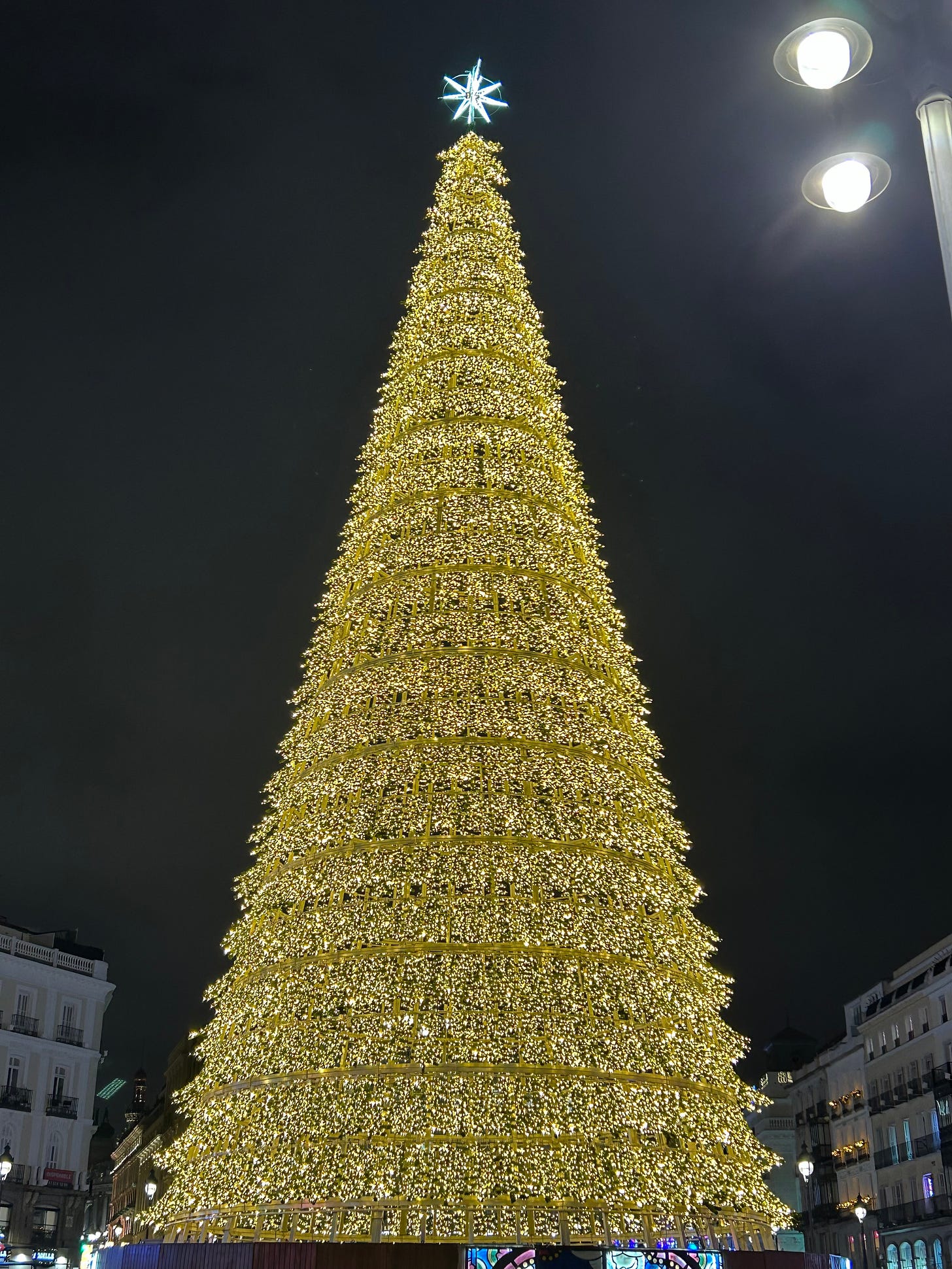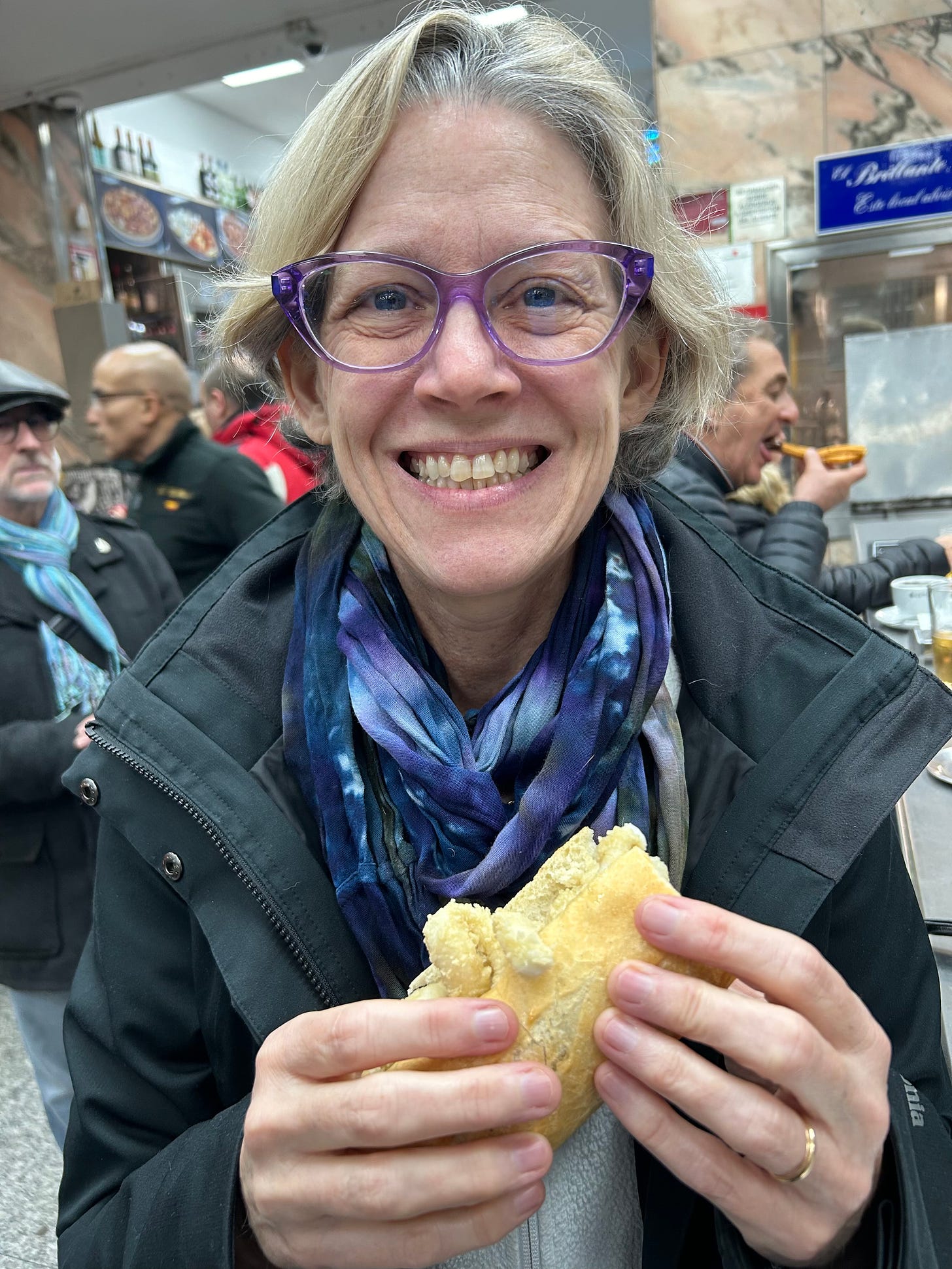Hello All and Merry Christmas, or whatever wish feels appropriate to you this December. I haven’t sent out a newsletter for a few weeks because I got a really bad cold (Ugh) then went to Spain (Yea!) then got back to the U.S. and was still sick (double UGH). Then all the kids were here for Christmas, which was wonderful. I’m on an antibiotic and on the mend. Hope that however each of you celebrated the last few days or weeks that you enjoyed yourselves.

As you may remember from a previous newsletter, I had planned two columns for Cancer Nursing Today on the legacy of Florence Nightingale. Here is the second one. I’m interested in everyones’ reactions, whether you agree, disagree, or have a completely different view of the situation. Please leave a comment if you feel compelled to do so. As usual, you’ll have to follow the link to the column and then come back here to Substack to respond.
Revisiting Florence Nightingale: Racism in American Nursing (from Cancer Nursing Today)
A few years ago, I got drawn into controversy on Twitter after retweeting praise of Florence Nightingale’s use of statistics to improve public health. Many of the commenters insisted that Nightingale was in large part responsible for racism in nursing. The exchange raised questions about Nightingale, her legacy, racism in nursing, and how or if the 3 are connected, and I’ve been mulling those questions ever since. I’m neither an historian nor a Nightingale expert, but I attempt to continue the conversation by addressing those questions here.
Let’s begin with some facts. The Nightingale nurses who served in the Crimea varied in class, educational and religious backgrounds, but they were all White women. In her writing, Nightingale made statements strongly supportive of the mission of British colonialism. Those 2 bits of information give credence to the argument that Nightingale valorized whiteness and conceived of nurses as essentially White, excluding women of color (and men of all races—a different topic) from nursing.
FREE City of Asylum event with Muhammad Zaman: In-Person and Virtual
I’m moderating another author event in Pittsburgh at City of Asylum on Tuesday, January 16 from 7-8:30pm. City of Asylum is on Pittsburgh’s Northside (where I live) and the address is: 40 W. North Avenue, Pittsburgh, PA 15212.
“Accessing healthcare is a minefield for the average American. How much more difficult is it for the forcibly displaced?
Around the world, millions are forcibly displaced by conflict, climate change, and persecution. In a continuation of our Healthcare and Humanity Reading Series, City of Asylum welcomes author Muhammad Zaman to share his recently released work We Wait for a Miracle: Health Care and the Forcibly Displaced. In We Wait for a Miracle, Muhammad shares poignant stories across continents to highlight the health care experiences of refugees and forced migrants.
In moving stories that span seven countries—Sudan, South Sudan, Uganda, Zimbabwe, Pakistan, Colombia, and Venezuela—Zaman shares the everyday struggles of refugees, the internally displaced, and the stateless in accessing the health care they need. He finds that barriers to health care share these key factors: trust, social network, efficiency of the health system, and the regulatory framework of the host environment.”
I’m keeping this short because I’m still a bit under the weather (such a strange expression—I wonder where it came from). Wishing everyone a sense of renewal in 2024.
And of course, hugs to all,
Theresa






I read both of these articles which I find fascinating. I work with mostly Jamaican nurses and aides in the nursing home where I am employed. I feel bad when some of the residents use racial slurs. The work environment in hospitals will have to change. In the future we will need more nurses due to the boomers becoming older. When I did my clinical in hospitals when I was in school, I did not feel any warm welcome from the staff. It was uncomfortable and made one think about calling out. So much change is needed for the future of nursing that has to include all.
I really like how your column shifts the discussion from a relatively trivial controversy (Nightingale was a product of her time; of course she was racist, but she also made tremendous contributions to healthcare) to a much more important issue, that of racism in healthcare right now. It would be wonderful to have scholarships and recruitment efforts to attract more Black and Latino nurses--we all would benefit from having more diversity in healthcare.